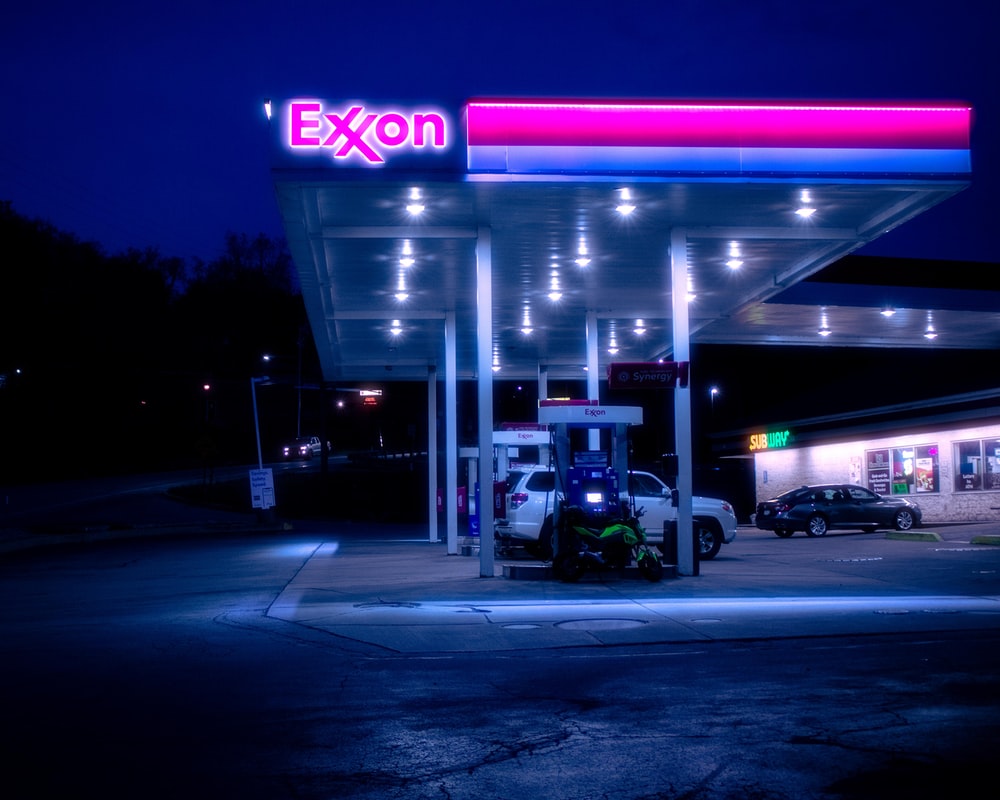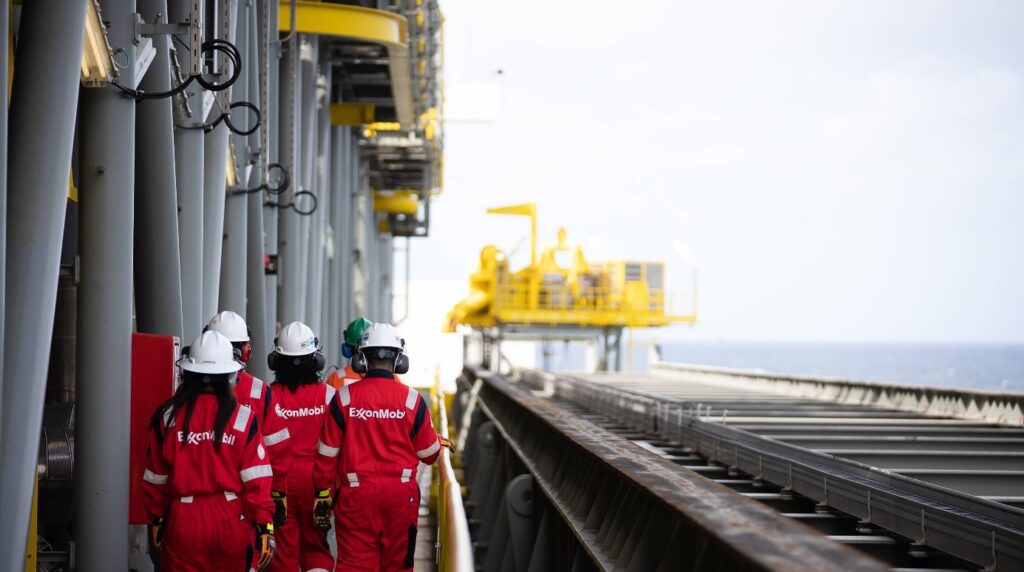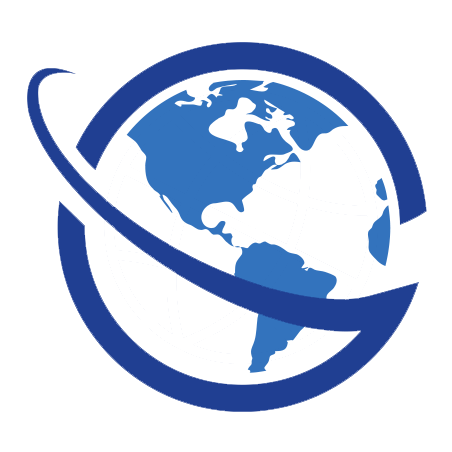What Companies Are Owned by Exxon Mobil?
Nov 20, 2023 By Susan Kelly
Brief Company Background
Exxon Mobil Corporation is one of the largest companies by revenue globally. It deals with oil and gas. Formed on November 30, 1999, it came as a result of the merging of Exxon and Mobil. Exxon was formerly the Standard Oil Company of New Jersey, while Mobil was the Standard Oil Company of New York. It goes by the brand names Esso, Exxon and Mobil, depending on the location.

Saudi Arabia’s Saudi Aramco (Saudi Arabian Oil Company) is the world’s largest energy company, with Exxon Mobil coming in second. Chevron Corporation is third, and Shell is fourth. ExxonMobil is the seventh largest oil refiner worldwide.
Exxon Mobil provides affordable energy while at the same time reducing global warming. By using ingenious technological strategies such as reverse osmosis, they hope to reduce greenhouse emissions resulting from manufacturing plastics.
ExxonMobil operates on six continents. Specifically, some of the countries it operates in include: Guyana, the United States of America, Canada, Indonesia, Papua New Guinea, Singapore, and Qatar. The easiest way for ExxonMobil to gain footing in oil reserves in new countries would be by proposing merger deals or buying out some of them.
Some of the companies acquired by Exxon Mobil through the years include:
XTO Energy Inc.
XTO was formerly known as Cross Timbers Oil Company. It was formed by Bob Simpson, Steve Palko and Jon Brumley in Spring, Texas, in 1986. The primary products it deals with are petroleum and natural gas. Since 2010, it has been a subsidiary of ExxonMobil.
ExxonMobil acquired XTO Energy on December 14, 2009, in a merger deal valued at $41 billion. It was founded in 1986 in Fort Worth, Texas. It has the largest natural gas reserves in the US. XTO was seen as a wildcat in the energy industry for a long time. Its 23 years of experience before the deal also portrayed how big of a deal this was. This deal was the biggest by ExxonMobil since its own merger between Exxon and Mobil.
The deal would capitalize XTO’s 45 trillion cubic feet of gas. It would complement ExxonMobil’s existing interests spread over Argentina, Canada, Hungary, Poland, Germany, and of course, America.
Celtic Exploration Ltd.
Celtic Exploration Limited was founded in 2002 and is headquartered in Alberta, Canada. It explores and develops properties with oil and gas. Exxon Mobil decided to buy Celtic Exploration because there were promising hopes of oil and gas exploration in West Canada. ExxonMobil acquired Celtic Exploration Ltd. on February 26, 2013.
The deal gave Exxon Mobil access to the Montney shale gas region. This region has about 450 trillion cubic feet of gas. The deal was worth C$3.1 billion.
BOPCO
ExxonMobil Corp. bought BOPCO for an estimated $6.6 billion. BOPCO is a family company inherited by brothers Sid, Edward, Robert and Lee from their uncle, Sid Richardson’s estate. ExxonMobil paid $5.6 billion upfront in Exxon shares, and the contingent payments are to be done between 2020 and 2032.
ExxonMobil acquired BOPCO on January 17, 2017. The deal gave ExxonMobil 3.4 billion boe in Delaware, consisting of 75% liquids. XTO Energy Inc., another subsidiary of ExxonMobil Corp, manages ExxonMobil’s liquid reserves.
Jurong Aromatics Corp.
Jurong Aromatics Corp. is a chemicals company based in Singapore. ExxonMobil purchased the corporation for an estimated $1.7 billion. The acquisition date was August 27, 2017. JAC produces about 1.4 million tonnes of aromatics annually. The deal was projected to increase paraxylene production to 1.8 million tonnes yearly.
Paraxylene produces polyester, which is a synthetic fabric used to make textiles. Singapore’s petrochemical industry greatly benefited from this buyout.
Imperial Oil Limited
Also called Compagnie Pétrolière Impériale Ltée in French, Imperial Oil Limited is the second-largest oil company in Canada. ExxonMobil majorly owns it at 69.6%. It produces crude oil and natural gas and also refines petroleum.
Imperial Oil was founded in 1880 when Canada was just thirteen years old. Its almost 112 years of experience brought both expertise and value to the table when making the deal with ExxonMobil.
Imperial Oil owns 25% of Syncrude, one of Canada’s largest oil sands. Syncrude produces over 350,000 barrels of oil per day. Its merger with ExxonMobil also brought in oil sands mining into the deal. The mining operations are called Kearl Oil Sands.
InterOil Corporation
ExxonMobil acquired InterOil through a sale of shares. Exxon bought each share of InterOil, which went for $45.00 at the time, using its own shares. The deal was completed on February 22, 2017, at an acquisition price of $2.7 billion.
The deal gave ExxonMobil access to over four million acres in Papua New Guinea, comprising six licenses. InterOil’s board of directors agreed to the deal and advised the company’s shareholders to do the same.
ExxonMobil prides itself as the largest investor in Papua New Guinea of all time. The deal increased PNG LNG’s liquefied natural gas production by 20% of the latter’s original capacity.

SeaRiver Maritime
ExxonMobil owns 100% of SeaRiver Maritime. After the Exxon Valdez oil spill in 1989, Exxon decided to form a new company to cater for its maritime operations. It began official operations in the 1990s. SeaRiver Maritime is ExxonMobil’s maritime transportation subsidiary.
The oil spill was devastating and saw about 11 million gallons of oil, about 240,000 barrels, discharged into Prince William Sound. The consequence was the pollution of about 1,300 miles of Alaska’s coastline. Due to Exxon’s slow response to the disaster, there was a widespread feeling of betrayal by the fishers and residents of the area. They felt that Exxon could have done better and faster. This is what led to the formation of SeaRiver Maritime.
Whether you know ExxonMobil as Esso, Exxon or Mobil, it is safe to say that there is an Exxon near you, or you’ve at least used ExxonMobil’s services within the past few days. The financial power of multinationals such as JPMorgan Chase is so tremendous that they can control several states’ budgets comfortably. This list contains just a few of ExxonMobil’s subsidiaries; there are numerous others.









 smartgridinfo
smartgridinfo